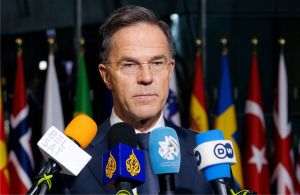• Constantin Boştină : "At the moment, Romania doesn"t need any kind of agreement, stand-by or precautionary"
• Franks, IMF: The precautionary agreement, a wise decision
The agreement with the IMF has harmed the business sector in Romania, since it destroyed SMEs, led to the hike of the VAT and created a major imbalance in the public sector, Florin Pogonaru, the chairman of the "Association of Romanian Business People" (AOAR).
"On a psychological level, the agreement damaged the credibility of the country and of the NBR, as it was said that the latter would use the loan to keep the exchange rate steady", Mr. Pogonaru said. In his opinion, the money from the IMF was squandered on the payment of pensions and wages and on rewarding banks that bought government bonds. The representatives of the AOAR are demanding more transparency and openness when it comes to the use that the loan will be put to.
In the future, they say, there is a danger that the economy could see a negative evolution, or perhaps an insignificant stabilization.
• Businesspeople and the IMF at odds over the new agreement
The representatives of the "AOAR" say that they do not understand why a new loan agreement would be necessary, as the state has the possibility to raise non-reimbursable grants for investments.
On the other hand, Jeffrey Franks, the head of the IMF mission, considers that the Romanian authorities "made a wise decision" when opting for a 2-year agreement with the IMF because that will ensure stability during the elections. Sunday night, president Traian Băsescu said that the new agreement with the IMF, the EU and the World Bank would prevent political parties from making any populist promises, as any party that would try to fool its voters would put itself in an awkward situation.
Constantin Boştină, the vice-president of the AOAR, said: "The business sector needs a responsible government, regardless of its political orientation, the country needs to overcome the crisis, which is economic and even political". In his opinion, Romania doesn"t need any loan agreement, be it stand-by or precautionary, since the money that was borrowed so far was not managed in an efficient or transparent manner. In his opinion, what the Romanian state should be banking on right now is a rescheduling of the loan received from the IMF and a grace period of 5-7 years. During that time, the money should be channeled into investments and modernization.
• Instead of raising wages, the state should have cut the VAT
According to Mr. Pogonaru, the government"s decision to raise wages by 15% in the public sector, proves that it failed to learn any lesson from the generalized wage cut that took place last year. In his opinion, raising wages should have been subject to performance criteria.
The members of the "AOAR" says that it would be a lot wiser for the state to bring back the VAT to its previous value, since it would set a health foundation for the recovery of the macroeconomic balance.
• The IMF sees a potential tax cut over the medium-long term
Lowering the major taxes, such as the VAT, is one of Romania"s medium-long term objective, as it reaches its budget deficit targets, the economy picks up and tax collection will improve, says Jeffrey Franks, without ruling out a cut of the social security contributions by mid-2011.
"Romania"s ability to cut taxes such as VAT and social security contributions in the future, will depend on two things: the reaching of the budget deficit target and then creating the conditions for lowering taxes without endangering the country"s chances of complying with the Maastricht budget deficit criteria, and secondly, as we continue to work with the government on improving the collection of current taxes, there will be room for some tax cuts", said the head of the IMF evaluation mission, Jeffrey Franks, quoted by Mediafax.
When asked whether the return to the 19% VAT rate was brought up during the negotiations with the Government, Franks said that there were no talks on this issue.
Monday night, PM Emil Boc said that the main taxes will remain unchanged, according to the agreement that Romania will conclude with the IMF in 2011 and 2012.
According to representatives of the AOAR, cutting social security contributions would support industrialization process, which is currently faced with an unnatural taxation of labor, said Florin Pogonaru. "At the moment, the standard practice for entrepreneurs is to take out their profit by paying a 16% tax and to pay the wages of their employees off the books, because if they were to hire them using a labor contract they would have to pay 43% in taxes", according to the officials of the AOAR.
At the end of last year, through the unified compensation process, the Government decided to increase wages in the public sector by 15% compared to their level in the month of October.




























































